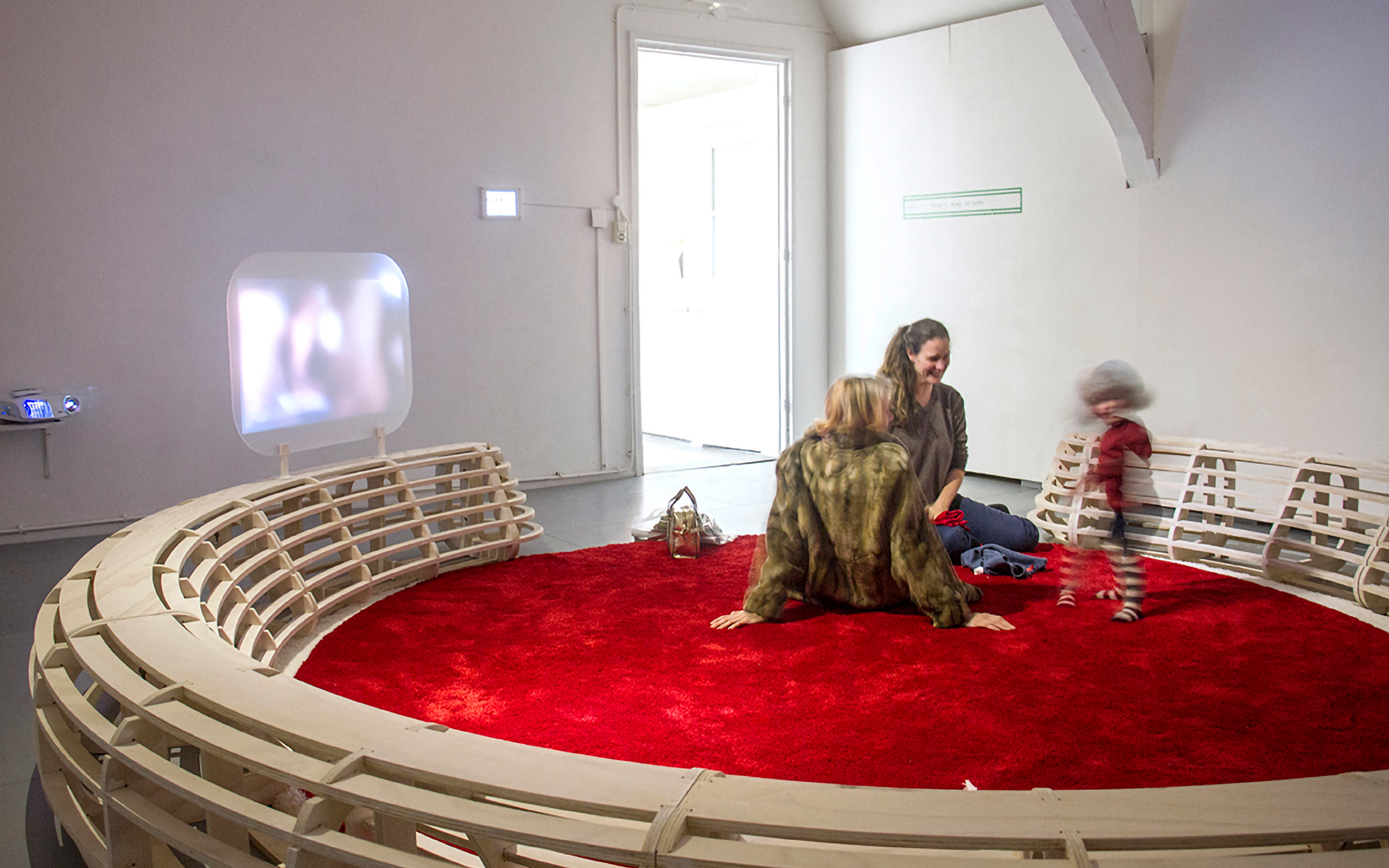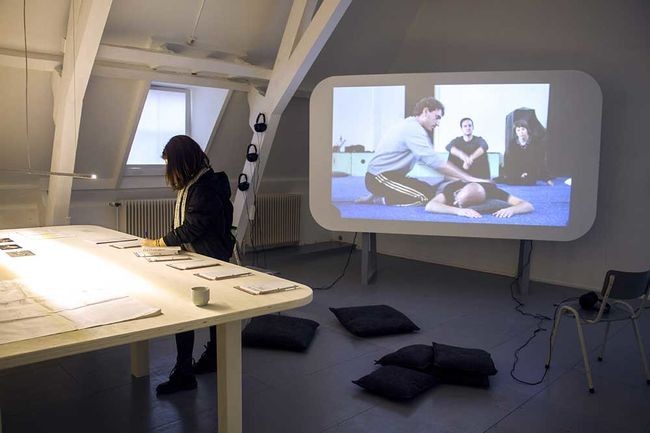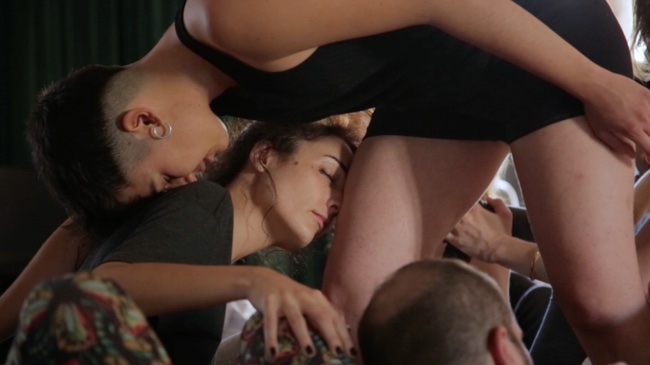Army of Love




“A complete love of our fellows demands more surmounting effort than the usual charitable love. Yet it also rewards us with the most extraordinary experiences and the deepest gratitude. And only then can a [once-]welfare society satisfy the demand for comprehensive justice for all.”
– Army of Love, thearmyoflove.net, 2016
“Everywhere we learn that love is important, and yet we are bombarded by its failure. In the realm of the political, among the religious, in our families, and in our romantic lives, we see little indication that love informs decisions, strengthens our understanding of community, or keeps us together. This bleak picture in no way alters the nature of our longing. We still hope that love will prevail. We still believe in love’s promise.”
– bell hooks, All About Love, 2000
26 November 2017–25 February 2018, Casco Art Institute: Working for the Commons
The exhibition includes two new Army of Love films, as well as furniture designed in collaboration with the architect Olga Subirós.Despite the vast evidence and documentation of its effects, there are not so many public discussions about love and its meaning in our lives. Perhaps that’s because it’s hard to speak about. To speak of love means to speak of its absence, and such a conversation is often regarded as a personal and private matter. Hence love is left alone, taken up in neo-fascist rhetoric (“love our people and hate others”) or relegated to a sad song.
The project-cum-supergroup Army of Love, initiated by writer Ingo Niermann and further developed by artist Dora García and many others, aims for intimate fulfillment of justice in the face of patriarchy, racism, and neoliberal, corporo-fascism. “Love soldiers” strive to share all-encompassing love with those who need it, and they are ready to receive love from those who want to give it. The Army provokes the possibility to think about and discuss love as a resource, and examine its conditions and exchange.
The Army of Love exhibition at Casco continues the trajectory of inquiry of the novel Solution 257: Complete Love by Ingo Niermann, the Army of Love film by Niermann and Alexa Karolinski, and the various performative interventions since. But it also marks a new iteration of the project in its two-year journey. The exhibition includes new documentary films that follow two major gatherings held in 2017: the Army of Love training camp organized with Casco, and the program Lo Inadecuado & Su Laboratorio del Amor hosted by García via the Independent Studies Programme, MACBA (Barcelona, Spain). The documentaries observe the diverse programs that were led by practitioners invested in the subjects of love, sexuality, and intimacy – how they are organized and how language and action are transmitted – and capture the curiosity and convictions that the Army of Love project and it’s enthusiasts incite. The exhibition includes material from training camp participants, ranging from text documents and a working code of conduct, to a collectively assembled bibliography that will remain open to addition and amendment throughout the exhibition. Furniture designed by García in collaboration with the architect Olga Subirós supports the viewing of the material.
If the Army sees itself as in a constant state of formation, it also provides a solid framework for discussion and debate around common understandings of love and practices for it. The exhibition itself presents an occasion for deeper understanding about Army of Love, in this instance through the influences of García, Niermann, Casco, camp participants, and others. In doing so, it highlights the fact that a sense of camaraderie and duty is required to recondition one’s understanding of love within and beyond personal choice and structural limitations. Army of Love becomes a platform where we can consider how to expand our spectrum of desire, and how to address loss and healing as part of our political struggle. Encompassing indirect experiences from onlookers at past events and direct encounters with the Army more recently, the project and exhibition speculate about the state of the Army of Love, as it oscillates between reality and fiction.
Prior to the exhibition and as part of an intra-organizational relationship with Army of Love in 2017, Casco organized the Army of Love training camp with García and Niermann in October to explore what the Army could be and what inclusive approaches to love might look like. The day camp was made up of twenty-seven participants who were brought together through our Open Call and invited as speakers and practitioners; the nighttime program was open to all. Various body-contact exercises as well as “hotspot” debates took place during the three-day camp, and subjects included the exchange of touch and non-ocular visualization; intimate listening and ways of relating; boundaries of the body and expansive language for how we describe it; specialized sex care for the disabled and elderly; decolonizing beauty and love; and practices of accountability and collective care within activist communities.